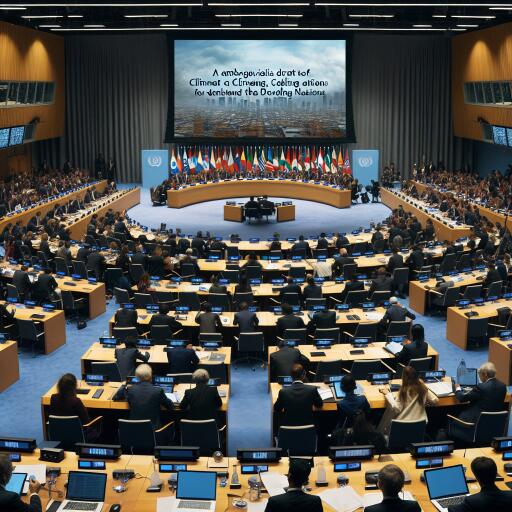
At UN Climate Talks, a Draft of the Deal Gives Little Clarity on Climate Cash for Developing Nations
In the early hours of Thursday, a new draft agreement was unveiled at the United Nations climate negotiations, outlining the framework for potential agreements regarding financial aid to developing nations. These critical discussions are taking place in Baku, Azerbaijan, under the banner of COP29. A major element notably absent from the document is the details on the financial contributions that wealthier countries are expected to provide.
The primary focus of these negotiations is to bridge the significant financial gap between what developing countries believe they need—an astronomical $1.3 trillion for transitioning to clean energy and implementing climate adaptation measures—and the much smaller sum that more prosperous nations have thus far been prepared to contribute. This gap remains a central challenge in achieving meaningful progress in global climate action.
Developing nations argue that they require substantial financial assistance to not only make the necessary shift towards renewable energy sources but also to build resilience against the adverse effects of climate change. Many of these countries are disproportionally affected by climate impacts despite contributing minimally to global emissions. Therefore, their demands for environmentally just financial commitments are crucial for sustainable development.
The reluctance of wealthier countries to commit to larger funds has been a persistent issue at international climate summits. Historical patterns show pledges that frequently fall short of requested amounts, leaving developing nations struggling to meet their climate goals. The ongoing discussions aim to address these long-standing disparities, but the current draft seems to have left some pivotal questions unresolved.
Negotiators are acutely aware that finding a resolution is not just a matter of ensuring equity. It is also a strategic necessity to galvanize cooperation and momentum across all nations, aligning financial flow with the objective of keeping global temperature rise below critical levels, as per the goals set by the Paris Agreement.
While debate continues over the precise figures and logistics, there is an overarching recognition that failure to reach a substantive accord can undermine global environmental efforts. The stakes are high, and the pressure is on developed countries to demonstrate leadership by adopting more concrete financial commitments.
Delegates are hopeful that as the discussions progress, negotiators will find common ground and inject specificity into the financial aspects of the climate agreement. It is imperative for global partners to foster a collaborative spirit, recognizing that addressing climate change requires collective action with shared financial responsibility.
The world watches with anticipation as these negotiations unfold, with many hoping that this draft will evolve into a more concrete pathway towards financing climate resilience and sustainability across developing nations. The commitment—or lack thereof—revealed in the final agreement could significantly influence the trajectory of global climate efforts.





Leave a Reply